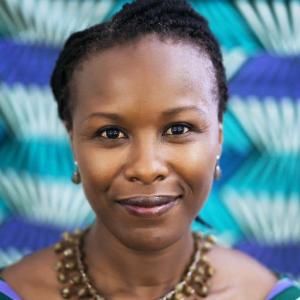Mr. Edward Walugembe, Commissioner Strategic Coordination and Implementation, Office of the Prime Minister
Representatives from Government Ministries, Departments and Agencies
Representatives from Civil Society, Private Sector and Academia
UN Colleagues
Ladies and Gentlemen,
I would like to thank the Government Technical Team coordinated by the Office of the Prime Minister, who have worked closely with the UN Technical Team in preparation of this Annual Performance Review Meeting, which is an important precursor to the Joint National–United Nations Steering Committee meeting, which is scheduled next month.
The UN system’s work in Uganda, is organised under the ‘single most important’ planning document - the UN Sustainable Development Cooperation Framework, which was jointly signed by the Government and the United Nations in September 2020. The Cooperation Framework with the Government and partners is implemented by 28 different UN Agencies, Funds and Programmes. The Cooperation Framework was formulated through an extensively consultative process over several months from 2019 to 2020 involving representative from Government, the United Nations, Private Sector, Academia Civil Society including youth.
Last year, we gathered at Hotel Africana for two days to come up with solid and concrete results on our collective work as the UN and its implementing partners. That process informed the Joint Steering Committee meeting we had after, and the annual results report we produced. Congratulations to all of us. Our annual results report was awarded as the best in the African continent for storytelling. These years, I want it to be the overall best report not only for Africa, but possibly globally.
At last years, joint steering committee we emphasized the need to strengthen coordination and collaboration, focus more on sustainable and impactful interventions especially in Karamoja and prioritize implementation of the Parish Development Model. We have achieved most of those agreed point, but we should work more on collaboration. I want to see more of our partners involved in our results group meetings and other related processes.
The purpose of the annual review is to take stock of our collective progress, challenges, opportunities, financial deliverables as well as the lessons, and learnings from the implementation of the Cooperation Framework joint work plans in the year 2023 and reflect on emerging priorities for 2024.
During the Global Sustainable Development Goals (SDG) Summit held late last year, at the mid-point to the end date set to achieve the 2030 Agenda, only 12 percent of the SDG indicators were on track. Here at home, the recent review of the Third National Development Plan (NDPIII), which is the framework through which SDGs are implemented, found that only 17 percent of its targets had been achieved mid-way its implementation. The multifaceted shocks experienced in the recent years have contributed significantly to this slow progress in our development journey but have also reawakened the calls to be more effective in the way we target our resource allocation, predict crises, manage risks and vulnerabilities, and monitor progress.
The SDG Summit identified six transitions to be focused on globally that represent a vital opportunity to put the SDGs back on track and secure the breakthroughs and collective commitments needed to drive SDG acceleration and help deliver the future we want. The transitions are (1) food systems; (2) energy access and affordability; (3) digital connectivity; (4) education; (5) jobs and social protection; and (6) climate change, biodiversity loss and pollution.
At the SDG Summit, the Government of Uganda made national commitments to to accelerate progress towards achievements of the SDGs, which are aligned to the six transitions. Government of Uganda’s 6 Commitments are the following:
- Commitment #1: Accelerating Leave No One Behind Agenda through the inclusive Parish Development Model Implementation
- Commitment #2: Accelerate inclusive actions for Trade financing and Climate-Smart investments.
- Commitment #3: Accelerate inclusive actions to leverage the advantages of Science, Technology and Innovation.
- Commitment #4: Accelerating inclusive economic and social development through climate change adaptation and mitigation.
- Commitment #5: Accelerate Efforts to harness the full potential of data to improve the lives of all Ugandans.
- Commitment #6: Accelerate strengthening SDG coordination and service delivery mechanisms.
As we identify areas for focus for implementing the Cooperation Framework in 2024, I urge you to be mindful of the six transitions and six commitments by the Government to accelerate the achievement of the SDGs in Uganda.
Note that we are in the penultimate year of implementing the Cooperation Framework. Within the course of the year, we shall embark on the process of formulating the next Cooperation Framework 2026-2030, which will be the last Cooperation Framework within the 2030 Agenda period. The process of formulation of the next Cooperation Framework will entail evaluation of the current Cooperation Framework, preparation of the Common Country Assessment to inform the next Cooperation Framework, which will be in support of the fourth National Development Plan (NDP IV). We will be calling on you to participate in these important processes.
The next two days we would like to have candid discussions with you on how, taking into consideration the changing context, we can together harness opportunities, overcome challenges and agree on priority areas to jointly work on as we implement the United Nations Sustainable Development Cooperation Framework in the coming year to accelerate efforts to achieve the 2030 Agenda and SDGs, and the aspirations of the third National Development Plan and the Vision 2040.
Thank you,


















